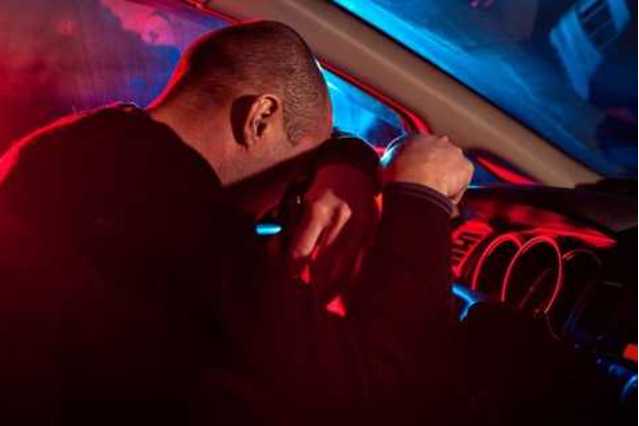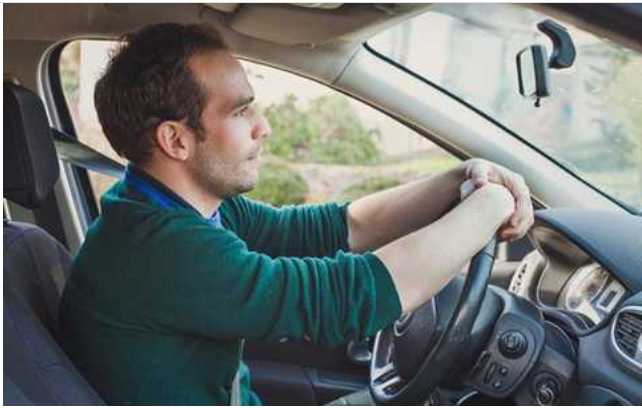
Impaired driving is one of the leading criminal causes of death and injury in Canada. Thus, the law takes the offence of impaired driving, or driving while intoxicated, very seriously.
Driving while under the influence of alcohol can have serious consequences . But how serious these are depend on how you react to the charges against you!
Every criminal offence comes with an opportunity to defend yourself and defeat the charges: it is up to you to assert your rights with the help of a criminal lawyer.
Because impaired driving charges have become common everywhere in Canada, there is no shortage of lawyers working in this field to ensure you get a fair chance at defending yourself.
JuriGo has several criminal lawyers as partners who will take care of you quickly when charges are laid against you. Find out how you can take advantage of their expertise by quickly connecting with a good lawyer from our network.
The penalties you can face for drinking and driving charges!
While some people consider it okay to get behind the wheel after a night of drinking, the law doesn't share this view. That's why the law imposes significant penalties on anyone convicted of driving under the influence of alcohol.
You have probably heard many misconceptions about these charges. This is not surprising considering how many people experience this type of offence, but here is what it really is:
Driving a vehicle : The person charged must be operating a motor vehicle. Contrary to popular belief, this is not limited to cars on public roads but includes motorcycles, and even boats.
Impaired by alcohol or drugs : Police officers who stop you must detect a certain amount of alcohol, THC, or other substance in your blood. Although there is a minimum legal limit, having an alcohol level below "0.08" does not automatically get you out of trouble.
What penalties do you face? The penalty you receive will be based on several factors, the most important of which are repeat offences and aggravating circumstances, such as injuring someone while driving.
Criminal record and a fine: This penalty applies as soon as you are found guilty of the offence in question. A minimum fine of $1000 is also imposed.
Driving suspension: The duration of this suspension varies. For a first offence, the suspension period will be 1 year, but a repeat offence can extend this period to 5 years.
In the case of a first offence, if your alcohol level is more than double the legal limit, the suspension will last up to 3 years, but the judge has some discretion in this matter depending on the circumstances.
Vehicle Seizure and Temporary Suspension: Upon your arrest, the police can seize your vehicle for 30 days and suspend your driver's license for 3 months.
Imprisonment: Again, the aggravating circumstances will determine whether imprisonment is appropriate for a first offence, but for a second or subsequent offence, the Criminal Code imposes a minimum sentence of 30 days imprisonment, while a third offence increases this period to 120 days.
The maximum sentence is still 10 years for impaired driving but if you hurt someone in the process, the penalties can be much higher!
Alcohol Ignition Interlock Device: Repeat drinking and driving offenders are now required to undergo breathalyzers for the rest of their lives, subject to an application to a judge after 10 years.
Starting November 10, 2019, repeat offenders must blow into a mouthpiece that measures blood alcohol level. The driver must pass the test before the device will allow the ignition to start.
It's understandable to be concerned but instead of panicking, contact JuriGo and we'll find you a lawyer to defend you against drunk driving charges!
Defences to an Impaired Driving Charge
What defences are available for a drinking and driving offence? Too many motorists do not bother to defend themselves against these charges because they think it is hopeless. However, it is crucial to consult a lawyer, as several defences can be used to exonerate you from this charge. Here are the most common ones!
- Unlawful stop of the vehicle based on arbitrary grounds
- Lack of reasonable grounds to arrest you
- Your right to counsel was not respected by the police
- Failure to comply with sampling deadlines\
Forget the "last drink defence" as those days are over! There was a time when the accused could justify driving while intoxicated by claiming that he or she was still fit to drive because the last drink consumed had not yet metabolized. However, the law has been amended to remove this possibility.
Despite this, your options for possible defences has not diminished and the sooner you act with an attorney, the better your chances of being exonerated.
Custody and control of a vehicle while intoxicated: Is there a valid defence?

"I was going to sleep in the car until the effects of the alcohol wear off," says the person before being handcuffed by the police.
While the intention of waiting before driving may be noble, it is considered criminal under the law as "care and control of a motor vehicle while intoxicated".
Watching, monitoring, or being in charge of a vehicle while intoxicated are examples that could warrant charges being laid against you. Sleeping in the back seat of your car is not a viable alternative to taking a cab. Worse yet, the law provides a presumption of intent to drive for the person sitting in the driver's seat.
In order for you to be convicted of such an offence, there must be a realistic risk that the person will use the vehicle, which is the key element of the charge! In doing so, your lawyer will attempt to prove the lack of intent and risk of putting the vehicle in motion.
What are the consequences of drinking and driving under 22?
For several years now, drivers under the age of 22 have been prohibited from getting behind the wheel after consuming alcohol, regardless of the level of alcohol ingested. But what are the consequences of breaking this law?
If the alcohol level exceeds 80mg per 100ml of alcohol, the driver will be charged with a criminal offence of driving while impaired by alcohol or drugs, as the case may be. The same offences apply as to any other person in similar circumstances.
However, when the driver under 22 years of age consumes alcohol without exceeding the legal limit of "0.08", the penalty will be the removal of 4 demerit points, a fine of between $300 and $600, and a 90-day license suspension.
As with the drinking and driving offence, this penalty can also be contested with the help of a lawyer to fight the licence suspension.
Impaired by drugs: What are the conditions for being charged?

An increasingly common question since the legalization of cannabis is how much can be consumed while driving. Police officers have not always had the tools to accurately measure THC levels in the blood, but those days are over. That's why specific limits have been put in place, as follows:
- 5 nanograms of THC per milliliter of blood
OR
- A THC level of 2.5 nanograms mixed with 50mg of alcohol per 100ml of blood.
What about other drugs? Any drug that is detectable and found in your system can justify criminal charges against you, with the exception of GHB. However, don't be too quick to rejoice if your blood result shows a level lower than the one above. It is still possible to charge you if you were found to be impaired by fatigue or alcohol.
Answers to FAQs about the consequences of a drunk driving charge!
Who among you has never been uncertain about information on drinking and driving offences? Very few, for sure.
Your best chance of getting out of a jam with your DUI charges is to rely on solid information and that's exactly what JuriGo does for you by answering the most common questions about these charges!
What happens if you refuse to blow into the breathalyzer?
Standing up to police officers who ask you to blow into the breathalyzer is a poor decision. You are committing an offence under the Criminal Code and are subject to more severe penalties under the Highway Safety Code. The fine can be higher and refusing to blow may result in a license suspension of up to 3 years.
Is the charge of drinking and driving limited to cars on the road?
No! The Criminal Code deems it a violation to operate a "motor vehicle" while impaired. The list of motor vehicles covered include all types of cars, motorcycles, boats, snowmobiles, etc. It doesn't matter if you are on a public or a private road.
Can you be charged even if you are under the legal limit of 80mg/100ml?
Yes, although the 80mg/100ml blood alcohol level makes it more difficult for an accused individual to excuse himself, it is possible to charge a person with impaired driving even if their alcohol level is below that. Fatigue and mixing with other substances are the most common reasons given.
Is being impaired by prescription drugs a valid defence?
Taking medication, whether prescribed or not, can be an impaired driving offence. You must check with your doctor to see if you can still drive if you are taking the prescribed medication. If not, don't get behind the wheel!
Consult a lawyer to defend you against drunk driving charges!
Time is of the essence when you are facing alcohol-impaired driving charges. You need to act quickly with a lawyer to maximize your chances of getting a not-guilty verdict. Your driver's license, your car, and your clean record are all at risk!
If you don't want one mistake to define the rest of your life, it's a sign that you're ready to hire a criminal lawyer and, more specifically, an expert on alcohol-impaired driving charges!
JuriGo can make this connection seamlessly. Simply fill out our form at the bottom of the page and we will make sure to refer you to a criminal lawyer in your area!
There's no obligation on your part and our referral is free. Find your lawyer now to be free of the worry and stress of these criminal charges.